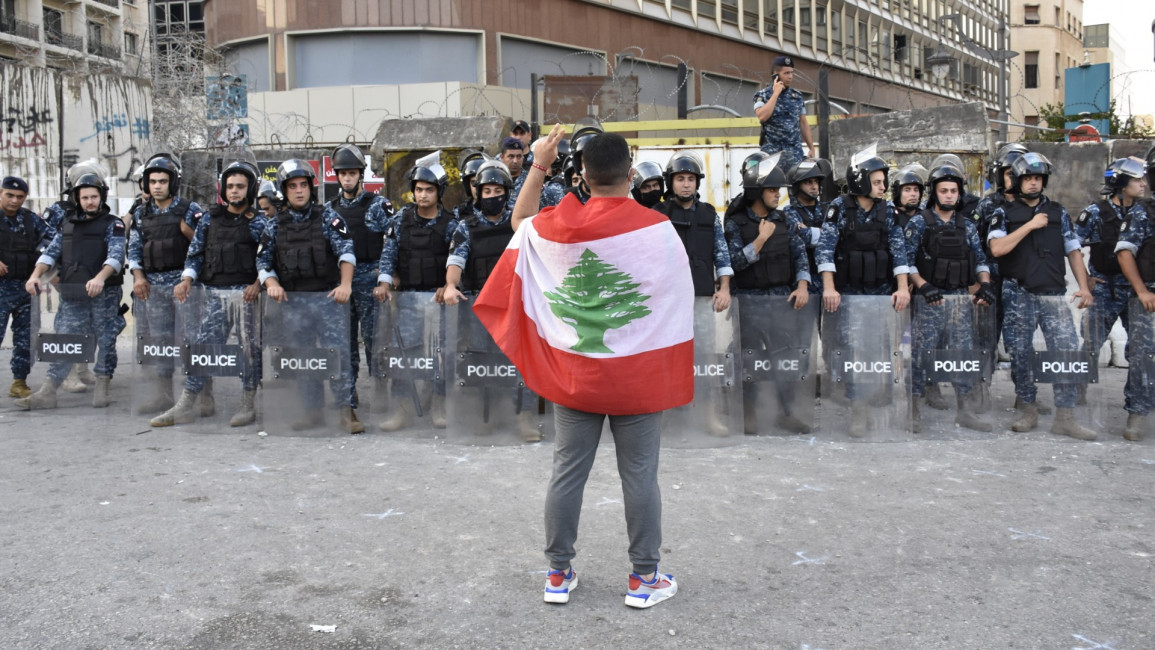Lebanon activists form coalition to defend free speech
The Coalition to Defend Freedom of Expression in Lebanon, which includes international watchdogs Amnesty International and Human Rights Watch, along with local groups such as the Samir Kassir Foundation, vowed to fight "attempts to stifle free speech and opinion in the country".
The alliance said that "repression" and "intimidation" are threatening free speech in Lebanon, hit by an economic meltdown and months of angry protests.
Since mass demonstrations erupted in October demanding the removal of a ruling class deemed inept and corrupt, authorities have cracked down on protesters, the coalition said in a statement.
Dozens of people have been summoned for interrogation over social media posts relating to the recent uprising – although the coalition says crackdowns on peaceful speech and expression in Lebanon began after mass protests in 2015, but intensified after October 2019.
| The organisations in the coalition |
|
Aya Majzoub, Lebanon researcher at HRW, said the group had documented "more than 60 people called in for interrogation based on things they wrote on social media" since protests started on 17 October.
She cited a prosecutor's decision to investigate social media posts deemed to be insulting to the president, as well as army intelligence officers stopping reporters filming on the streets of Beirut last week.
"All of this is creating a climate of intimidation in Lebanon where people don't feel they are safe to speak their mind anymore," she said.
"Instead of heeding protesters' calls for accountability, the authorities are waging a campaign of repression against people who expose corruption and rightfully criticise the government's significant failings."
Those who were questioned by authorities have often reported being subjected to physical and psychological abuse intended to humiliate, punish, and deter them from sharing content deemed insulting to those in power, the coalition statement added.
Lawyers have reported their clients were forced to remove content and sign pledges never to share or publish anything defamatory again, the coalition said.
The group added that these practices violate the basic rights and freedom of expression.
Read also: Popular Lebanese TV host to stand trial for insulting 'evil' President Erdogan
"In most of the speech cases documented by members of the coalition, the prosecution and security agencies acted improperly – and sometimes illegally – to intimidate and silence people charged in these cases," the coalition statement said.
It warned that "powerful political and religious figures have increasingly used the country's criminal insult and defamation laws as a tool for retaliation and repression against critics".
The statement urged public prosecutors and security agencies "to refrain from summoning people to investigations for exercising their right to free speech".
Debt-laden Lebanon is in the throes of its worst economic crisis since the 1975-1990 civil war, with almost half its population now living in poverty.
Banks have severely restricted dollar withdrawals and the Lebanese pound has plummeted to record lows on the black market, sparking price hikes and fanning public anger.
The novel coronavirus, which has infected over 2,300 people and killed 36, has forced lockdown measures that further exacerbated the economic crisis.
Protests in recent months have been smaller and largely peaceful, but some have spiralled into clashes between demonstrators and security forces firing tear gas and rubber bullets.
Ayman Mhanna, the director of the Samir Kassir Foundation, said 21 journalists were "directly physically assaulted" while covering the demonstrations.
"Working on the ground has become a nightmare," said Doja Daoud, a member of the Alternative Media Syndicate that joined the coalition.
"Security forces interrogate correspondents and ask them about the reasons behind their coverage," he added.
Follow us on Facebook, Twitter and Instagram to stay connected


